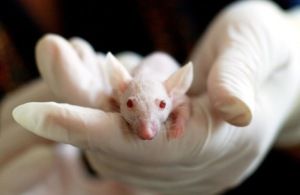News
Danish researchers on verge of cancer treatment breakthrough
This article is more than 8 years old.
A new treatment might be on the way for some of the nastiest forms of cancer that don’t respond to chemotherapy

He may show us the way to a new cancer treatment (photo: Pixabay)
A Danish research team has managed to fight a deadly bladder cancer using an artificial malaria protein, Videnskab.dk reports
The successful experiment, which was carried out on mice, has great potential to treat humans.
Back in 2015, the researchers discovered almost by accident that a protein from a malaria parasite was able to bind on to cancer cells in the lungs, chest and prostate glands in mice.
READ ALSO: Simple urine test for prostate cancer developed by Danish researchers
The same team continued their work and are now trying to find out whether the method can be used to treat other serious forms of cancer. In a published article, they describe their success in treating bladder cancer, which is resistant to treatment by chemotherapy.
Great potential
“The perspective in this study is remarkable because the treatment can potentially help a group of patients who don’t respond to the standard chemotherapy treatment,” said Mads Duagaard, the leader of the molecular pathology and cell imaging laboratory at the University of British Colombia, who is a senior researcher at Vancouver Prostate Centre in Canada.
At Aarhus University Hospital, the head of research into bladder cancer, Lars Dyrskjøt Andersen, calls the research promising.
“If we can start the treatment at an early stage – for example, if it’s possible to rinse the bladder with an agent attached to artificial malaria proteins – we can save a great deal of resources on arthroscopies and avoid giving patients treatments with lots of side-effects,” he said.






































